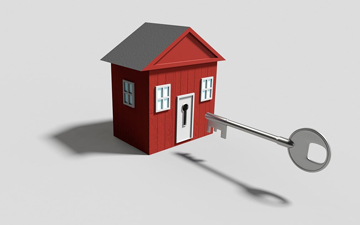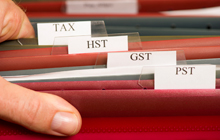What expenses can owners deduct from rental properties that produce no income?

In Blecha v The King, the Canada Revenue Agency disputed whether a taxpayer was really renting residential property, explains tax lawyer David J Rotfleisch
Introduction: CRA's Reassessments Related to Deductibility of Expenses for a Rental Property
 |
David J Rotfleisch, CPA, JD is the founding tax lawyer of Taxpage.com and Rotfleisch & Samulovitch P.C., a Toronto-based boutique tax law corporate law firm. |
Blecha v The King, 2025 TCC 91 involved a taxpayer who owned a small house in Wiarton, Ontario and claimed rental losses. In 2015, 2016, and 2017, the Appellant's mother moved into the home and made payments for the home. The Appellant asserted that his home was a rental property and his mother was a tenant. From his perspective, this entitled him to deduct expenses related to the rental property.
The Canada Revenue Agency did not accept that the property was a rental property. The taxpayer was reassessed, and the expenses that were deducted in relation to the rental property were disallowed. Further, his rental income for the years in question was reduced to nil.
The Tax Court examined the evidence and circumstances and found that the income that he received was not income from property. As such, the deductions were not allowed, and the appeal was dismissed.
The Appellant's Position: The Property Is a Rental Property, Which Entitled Him to Deductions
The Appellant claimed the deductions on his property because he contended that the property was a rental property during the relevant years. He argued that he owned the property in the pursuit of profit and not a personal endeavour. This would entitle him to make deductions on the income he received from the property.
CRA's Position: The Appellant is Not Entitled to Deduct Any Amounts Because He Did Not Earn Income From Property or Business
The CRA's position was premised on the assumption that the property was not a rental property. Since the property in question was not a rental property, the income that he earned had no source under section 3 of the Income Tax Act ("Tax Act"). As such, no deductions should be allowed.
In the alternative, if the Tax Court found that the property was a rental property, the CRA argued that the taxpayer's deductions should be limited under section 18(1)(h), 18(1)(a), 67 of the Tax Act and subsection 1100(11) of the Income Tax Regulations ("Regulations").
Section 18 of the Tax Act prohibits a taxpayer from deducting certain items that are listed in the section. Specifically, paragraph (h) does not allow deductions for personal or living expenses. Paragraph (a) does not allow deductions for an outlay or expense unless it was made for the purpose of gaining or producing income from business or property.
The general rule under section 67 is that a deduction for an outlay or expense cannot be made unless it was reasonable in the circumstances. Regulation 1100(11) provides that a deduction in respect of rental property cannot exceed the amount by which the income from renting the property exceeds the losses from renting the property.
Legal Test to Determine Whether There is Income From Property: Stewart v R
The first pertinent issue is whether the Appellant was earning income from property. The test to determine whether the taxpayer had a source of income from property was set out in the Supreme Court of Canada's case, Stewart v R 2002 TC 6969. The test relates to the pursuit of profit and involves answering two questions:
- Is the activity of the taxpayer undertaken in pursuit of profit, or is it a personal endeavour?
- If it is not a personal endeavour, is the source of income a business or property?
The first question requires the Court to distinguish between people who engage in commercial activities or hobbies.
The Court stated that the subjective intent of the Appellant is relevant in determining whether the activities were undertaken in the pursuit of profit. If there is an intent to profit, that is an indication that the income will be either business income or income from property.
Further, the Court will look to see if there is evidence of businesslike behaviour to support the allegation that the taxpayer had the subjective intention to earn a profit. Specifically, the Court will examine:
- the profit and loss record in recent years;
- the taxpayer's experience and training;
- the taxpayer's actual conduct pursuing the venture;
- the capability of the venture to show profit.
If the taxpayer's activities are not personal in nature, then the Court is left with answering whether the source of income is business or property.
To make deductions under section 18, there is a requirement that the taxpayer earn income from a business or property. This means that there first needs to be income from a source, and that source must be business or property.
Application: The Court Considers Documentary Evidence and The Taxpayer's Conduct to Determine Whether The Property Was a Rental Property
Ultimately, in this case, the Tax Court did not agree that the Appellant was engaged in commercial-like activity. Thus, there was no source of income, and, consequently, he was not entitled to claim deductions.
The Tax Court considered various pieces of documentary evidence to come to this conclusion. First, the Tax Court took issue with the fact that much of the living expenses were borne by the Appellant. Specifically, personal utilities, such as telephone and cable, were paid by the Appellant.
Second, the considerable improvements made to the home in the period that the Appellant's mother became a "tenant" never resulted in a rent increase. Third, even after the home became vacant in 2021 and after the renovations were complete, no other tenant occupied the property, even at a point in time during the COVID-19 pandemic when people were seeking to live in remote areas.
One of the objective factors that the court emphasized was the Appellant's conduct in pursuing the venture. For example, the Tax Court was suspicious of how the Appellant never advertised the property for rent. The actual way he conducted himself during the period that his mother was a tenant was also suspicious, as he occupied a room even though the lease never allowed him to occupy a room to store tools for the renovation or for him to stay during the weekend.
The house also remained his personal residence after the renovations were concluded. These facts led to the conclusion that he was essentially renovating his personal property while presenting to the CRA that he was renting his property.
The taxpayer in this case found himself in a situation where he thought it was possible to take advantage of specific deductions based on the characterization of his income. The issue with his plan is that the evidence and facts related to his situation did not adequately show that he was producing income from a property, which resulted in the CRA denying his claim to certain deductions.
David J Rotfleisch, CPA, JD is the founding tax lawyer of Taxpage.com and Rotfleisch & Samulovitch P.C., a Toronto-based boutique tax law corporate law firm and is a Certified Specialist in Taxation Law who has completed the CICA in-depth tax planning course. He appears regularly in print, radio and TV and blogs extensively.
With over 30 years of experience as both a lawyer and chartered professional accountant, he has helped start-up businesses, cryptocurrency traders, resident and non-resident business owners and corporations with their tax planning, with will and estate planning, voluntary disclosures and tax dispute resolution including tax audit representation and tax litigation. Visit www.Taxpage.com and email David at david@taxpage.com.
Read the original article in full on Taxpage. Author photo courtesy Rotfleisch & Samulovitch P.C. Title image: Pixabay (qimono), 2114455,
.











(0) Comments